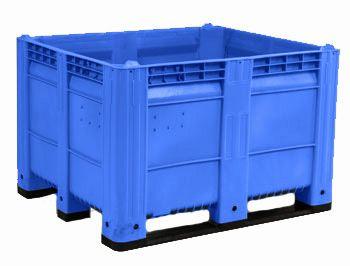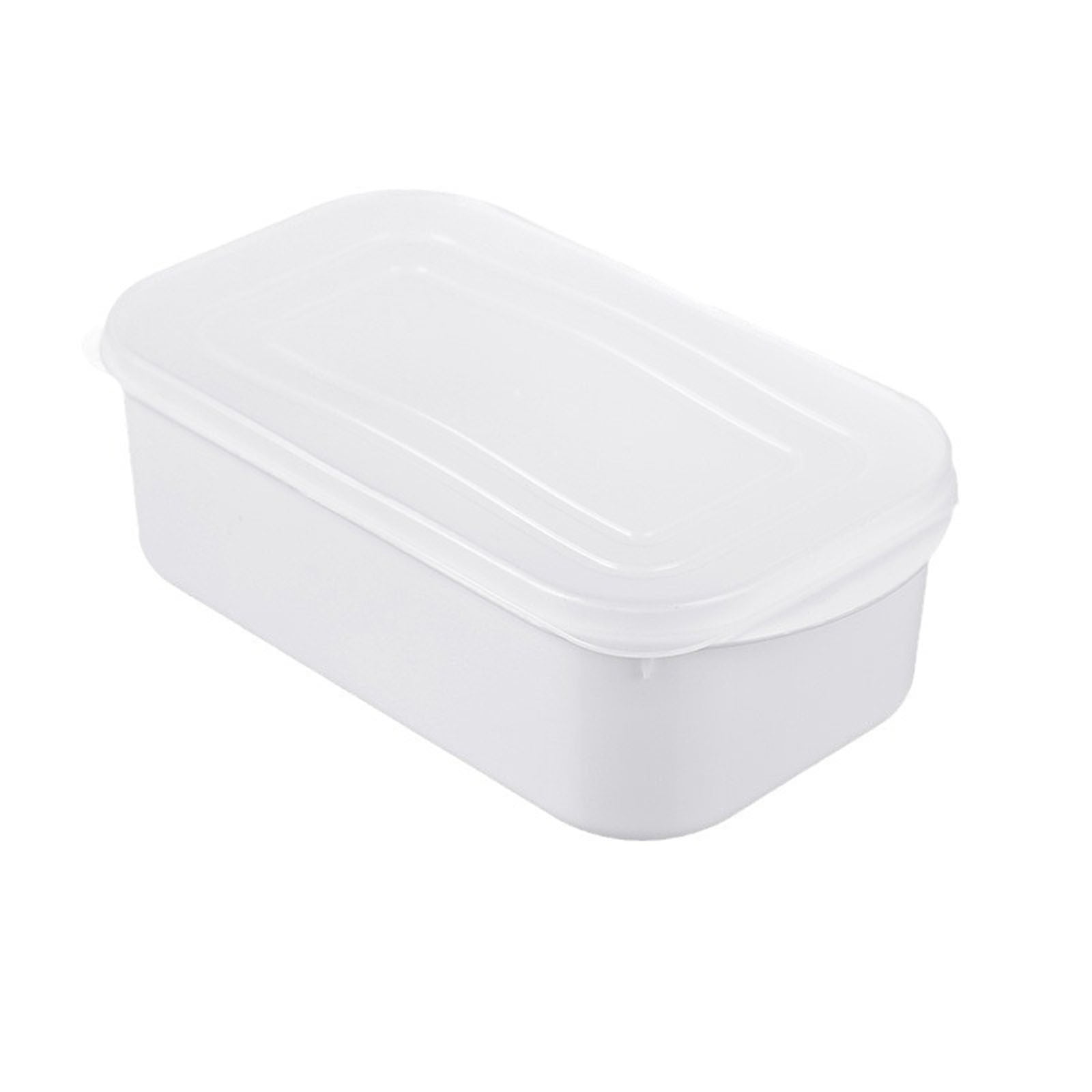The Duty of Mass Plastic Containers in Effective Recycling Practices and Sustainability
Bulk plastic containers are essential to contemporary recycling efforts. Their layout enhances the effectiveness of material collection and transport, adding to sustainability objectives. These containers not just optimize room yet likewise aid in monitoring contamination degrees. However, their application is not without obstacles. Understanding the complete extent of their influence discloses a complex relationship between logistics and environmental duty that calls for further expedition.
Understanding Mass Plastic Containers
Bulk plastic containers serve as a vital part in numerous sectors, assisting in the storage and transport of items. These containers are commonly made from durable materials such as high-density polyethylene (HDPE) or polypropylene, which give resilience and resistance to ecological aspects. Their layout typically consists of functions like stackability and modularity, permitting efficient use space throughout both storage and transit.
Industries such as agriculture, food handling, and manufacturing frequently utilize mass plastic containers due to their lightweight nature and simplicity of handling. The containers come in numerous sizes and setups, dealing with the particular demands of different items. Their versatility extends past mere performance; they can also be customized with covers, handles, and classifying alternatives to improve use - Bulk Plastic Containers. Because of this, mass plastic containers play a critical duty in enhancing logistics and supply chain procedures across several industries, therefore adding to overall efficiency and cost-effectiveness
Benefits of Utilizing Mass Plastic Containers in Recycling
When companies focus on reusing initiatives, the use of mass plastic containers greatly boosts the efficiency of the procedure. These containers are made to enhance room, enabling for the storage space and transport of bigger quantities of recyclable products. This causes fewer journeys to recycling facilities, consequently minimizing gas usage and connected emissions.
Furthermore, mass plastic containers are immune and durable to various environmental aspects, making sure that products remain secured throughout handling and transit. Their lightweight style additionally adds to reduce transportation expenses.
In addition, the harmony of these containers helps with better sorting and handling of recyclable products, which can enhance total recycling prices - Bulk Plastic Containers. Organizations that embrace bulk plastic containers likewise demonstrate a commitment to sustainability, positively affecting their brand name picture. Ultimately, these advantages not just streamline reusing techniques however additionally add to broader ecological objectives
Exactly How Mass Plastic Containers Facilitate Material Collection
Reliable product collection is significantly boosted by the use of bulk plastic containers, as they offer a efficient and organized option for collecting recyclable things. These containers are developed to fit huge volumes of products, which streamlines the sorting and storage process. Their stackable style takes full advantage of space use, making it less complicated for centers to organize recyclables without mess.
Additionally, bulk plastic containers are weather-resistant and sturdy, permitting outdoor placement without deterioration. This strength guarantees that materials continue to be safeguarded until they are gathered for processing.

The uniformity in dimension and shape of these containers helps with standardization across collection factors, allowing far better tracking of recyclable quantities. Their clear nature permits for very easy presence of materials, assisting in the monitoring of contamination levels and ensuring that just appropriate products are gathered. Overall, mass plastic containers play a critical role in streamlining the material collection procedure, consequently advertising reliable recycling techniques.
Transportation Efficiency and Environmental Impact
Transport efficiency plays a vital duty in the recycling procedure, especially through the optimization of lots capability wholesale plastic containers. By taking full advantage of the quantity of product transferred, business can considerably lower the number of journeys needed, therefore decreasing their carbon impact. This technique not only boosts operational performance however likewise adds to a lot more sustainable ecological methods.

Enhancing Load Ability
Although optimizing lots capability is often overlooked, it plays an essential role in boosting transport efficiency and minimizing environmental impact in reusing techniques. By optimizing the quantity that mass plastic containers can hold, reusing procedures can lower the number of journeys needed for transport. This not only lowers gas intake but additionally decreases the deterioration on vehicles. Effective lots administration allows facilities to utilize area efficiently, making certain that each transportation cycle is as efficient as feasible. Furthermore, well-optimized loads can cause far better settlements with logistics providers, potentially lowering general costs. Eventually, enhancing tons capacity adds to a much more sustainable reusing system by promoting efficient source use and minimizing waste generated during transportation.
Minimizing Carbon Footprint
As recycling operations endeavor to decrease their ecological influence, reducing the carbon impact linked with transport becomes a critical goal. Bulk plastic containers play an essential duty in attaining this aim by improving tons effectiveness and maximizing logistics. Their light-weight yet resilient style permits maximum cargo space utilization, minimizing the variety of trips needed to deliver materials. By consolidating shipments, recycling facilities can reduce fuel intake and greenhouse gas discharges. Additionally, purposefully this website locating recycling centers decreases transportation ranges, furthermore decreasing carbon outcomes. Using fuel-efficient lorries and different energy sources enhances total sustainability. By incorporating these methods, the recycling sector can substantially diminish its carbon footprint, contributing to an extra sustainable future.
Challenges in using Mass Plastic Containers

Contamination Concerns
Contamination issues stand for a significant challenge in the reliable usage of bulk plastic containers within recycling techniques. These containers usually build up deposits from previous components, resulting in mixed products that can prevent the reusing process. Contaminants such as food waste, chemicals, or non-recyclable materials can endanger the honesty of the entire set, resulting in increased disposal prices and decreased recycling rates. Furthermore, inappropriate cleansing or sorting can aggravate these issues, making it challenging for reusing centers to refine materials effectively. The existence of impurities not just impacts the top quality of recycled products yet additionally weakens the total sustainability initiatives targeted at reducing plastic waste. Resolving these contamination difficulties is essential for enhancing the efficacy of mass plastic container recycling.
Recycling Infrastructure Limitations
Ineffectiveness in recycling framework poses considerable challenges for the reliable administration of mass plastic containers. Lots of recycling facilities do not have the ability to process big volumes of these containers successfully, causing enhanced delays and costs. Inadequate sorting technologies commonly lead to contamination, as mass containers may be blended with other materials, complicating the reusing process. Minimal transport choices likewise hinder the motion of mass plastic containers to suitable reusing facilities, resulting in increased land fill waste. In addition, a lack of standardized methods for mass container recycling creates complication among organizations and consumers, additionally complicating efforts to advertise sustainability. Addressing these framework limitations is vital to improve recycling techniques and maximize the capacity of bulk plastic containers in a circular economic situation.
Ideal Practices for Implementing Mass Plastic Containers
They need to focus on a critical approach that enhances effectiveness and lowers contamination dangers when organizations think about executing bulk plastic containers in their reusing techniques. Picking the suitable container dimension and type is vital to suit the volume of products being refined. Organizations should likewise develop clear labeling and signage to guide customers on correct disposal approaches, reducing confusion and mistakes. Routine training sessions for personnel can additionally strengthen these practices, guaranteeing everybody understands their roles in maintaining recycling honesty.
Additionally, companies ought to execute a routine upkeep routine to evaluate and tidy containers, stopping the accumulation of pollutants. Partnering with regional recycling centers can additionally simplify the collection procedure, guaranteeing that materials are properly refined. Companies ought to keep track of and evaluate their reusing metrics, using this data to refine practices over time and promote continuous improvement in their sustainability initiatives.
The Future of Bulk Plastic Containers in Sustainable Practices
As companies increasingly focus on sustainability, the duty of bulk plastic containers in reusing methods is readied to progress considerably. Technologies in materials scientific research are bring about the advancement of recyclable and naturally degradable choices, boosting the ecological benefits of bulk plastic containers. On top of that, the execution of closed-loop systems will allow for much easier collection and repurposing of these containers, decreasing waste and resource intake.
Technical innovations, such as wise monitoring systems, will make it possible for companies to check the lifecycle of bulk containers, boosting effectiveness in reusing procedures. As customer need for sustainable techniques expands, companies will likely adopt mass plastic containers developed for reuse and long-lasting worth. Partnership between federal governments and industries will promote the establishment of standard recycling methods, making sure that mass containers are successfully integrated into more comprehensive sustainability initiatives. Overall, the future of mass plastic containers shows up promising, with considerable possibility for contributing to a circular economic situation.
Often Asked Inquiries
Just How Are Mass Plastic Containers Made and What Materials Are Utilized?
Mass plastic containers are typically made from high-density polyethylene (HDPE) or polypropylene (PP) These materials are refined via shot molding or that site blow molding techniques, leading to long lasting, light-weight containers ideal for numerous storage and transportation needs.
Can Bulk Plastic Containers Be Recycled Several Times Before Recycling?
Yes, bulk plastic containers can be recycled numerous times prior to reusing. Their resilience and design permit for duplicated use in various applications, see here advertising sustainability and source performance while minimizing the requirement for new containers.

What Qualifications Exist for Bulk Plastic Containers in Recycling?
Numerous accreditations for bulk plastic containers include the Recycling Collaboration's certification, the Cradle to Cradle Certified ™ standard, and the Lasting Product packaging Coalition's guidelines, ensuring containers fulfill details environmental and recyclability standards for reliable recycling.
Just How Do Bulk Plastic Containers Compare to Other Recycling Storage Space Options?
Bulk plastic containers provide better sturdiness and ability compared to other reusing storage options, minimizing the risk of contamination and promoting efficient transportation. Their layout sustains far better organization, boosting general effectiveness in recycling procedures.
What Is the Life-span of a Bulk Plastic Container in Recycling Processes?
The life-span of a bulk plastic container in recycling procedures normally ranges from 5 to ten years, depending on usage, material high quality, and ecological conditions, allowing for several cycles of usage prior to ultimate disposal or recycling.
When organizations prioritize reusing initiatives, the usage of mass plastic containers greatly improves the performance of the process. Transport effectiveness plays a crucial function in the reusing process, especially via the optimization of lots ability in bulk plastic containers. The usage of mass plastic containers in reusing practices deals with considerable obstacles, particularly concerning contamination concerns and restrictions within recycling infrastructure. Contamination problems stand for a substantial challenge in the efficient usage of mass plastic containers within reusing methods. When companies consider implementing mass plastic containers in their reusing methods, they ought to focus on a critical strategy that improves effectiveness and decreases contamination threats.